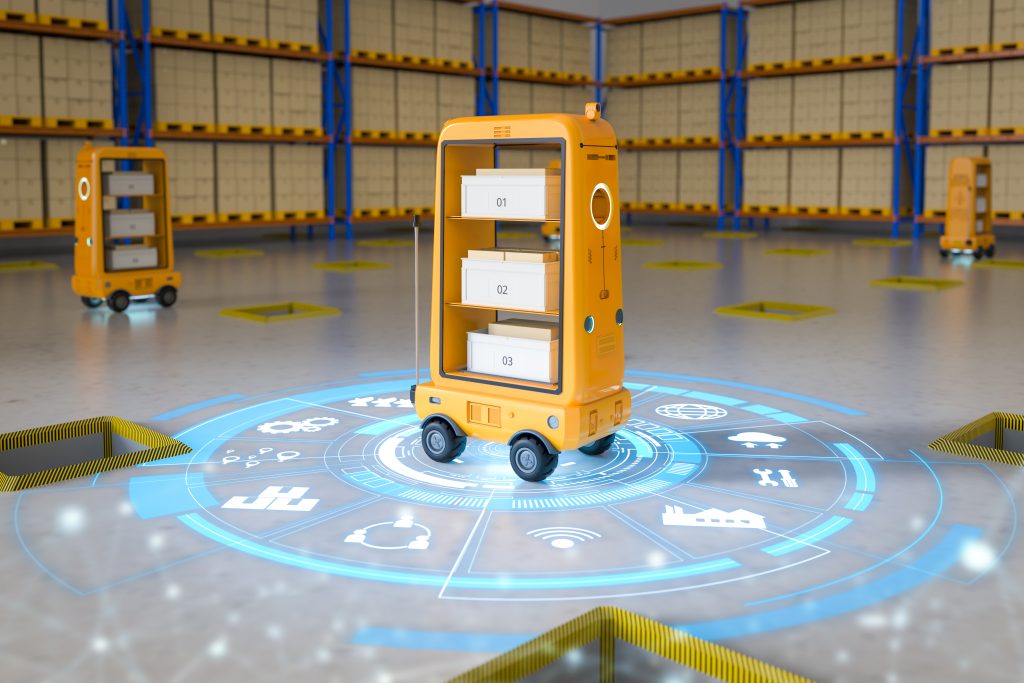Have you ever wondered about the potential pitfalls of incorporating AI into modern logistics? With the growing adoption of AI technologies in the logistics industry, it is important to address the challenges that arise from this integration. From concerns regarding data security and privacy to the high costs of implementation and ethical considerations, logistics companies face multiple obstacles when implementing AI solutions. Furthermore, the compatibility of AI with existing systems and the potential for job displacement add another layer of complexity. In this discussion, we will explore these problems in detail and examine how they can impact the effectiveness of AI in modern logistics. Stay tuned to discover the potential roadblocks and their implications for the industry’s future.
Lack of Human Oversight
The lack of human oversight in the implementation of AI technology in logistics raises concerns about accountability and potential risks. While AI offers advantages in automation, decision making, customer service, and innovation, it also brings about worries regarding job displacement.
One of the advantages of AI in logistics is its ability to automate various tasks, allowing for increased efficiency and cost savings. However, without proper human oversight, there is a risk of errors or biases in the AI algorithms, which can lead to incorrect decisions or actions. This lack of accountability can have negative consequences for logistics operations and customer satisfaction.
Additionally, the role of AI in customer service raises concerns about the potential for impersonal interactions and a loss of human touch. While AI-enabled chatbots can provide quick and efficient responses to customer inquiries, they may lack the empathy and understanding that human customer service representatives can offer. This may result in a diminished customer experience and dissatisfaction.
Furthermore, the potential for innovation with AI in logistics is vast, but it also raises concerns about job displacement. As AI continues to automate various tasks, there is a possibility of job losses in the industry. It is important for companies to address these concerns by reskilling and upskilling their workforce to adapt to the changing landscape and ensure job security.
Data Security and Privacy Concerns
Data security and privacy concerns are significant factors to consider when implementing AI technology in the logistics industry. As AI systems rely heavily on data collection and analysis, ensuring the protection of sensitive information is crucial. One major concern is data breach prevention, as a breach could lead to the exposure of confidential customer data and damage a company’s reputation. This highlights the importance of implementing robust security measures, such as data encryption, to safeguard sensitive information from unauthorized access.
Furthermore, regulatory compliance plays a vital role in data security and privacy. Logistics companies must adhere to relevant laws and regulations pertaining to data protection. This involves implementing privacy policies that outline how customer data is collected, used, and stored. By complying with these regulations, companies can instill customer trust and demonstrate their commitment to safeguarding personal information.
To address data security and privacy concerns effectively, logistics companies should prioritize investing in secure infrastructure and regularly updating their systems to stay ahead of potential threats. Implementing regular audits and assessments can help identify vulnerabilities and ensure that security measures are up to date.
High Costs of Implementation
Implementing AI in logistics can be a costly endeavor for companies looking to leverage the benefits of automation and optimization in their operations. Here are some key factors contributing to the high implementation costs:
- Scalability challenges: Scaling up AI systems to handle large volumes of data and complex logistics operations can require significant investments in hardware, software, and infrastructure.
- ROI analysis: Before implementing AI, companies need to conduct a thorough ROI analysis to determine if the benefits outweigh the costs. This analysis involves evaluating the potential cost savings, increased efficiency, and improved customer service that AI can bring to their logistics operations.
- Technological barriers: Integrating AI into existing logistics systems can be challenging due to compatibility issues and the need for specialized hardware and software. Companies may need to invest in upgrading their infrastructure and training their IT staff to handle AI technologies.
- Training and skill development: Implementing AI requires a workforce that is trained in AI technologies and data analytics. Companies may need to invest in training programs and hiring new talent with AI expertise, which can add to the implementation costs.
Ethical Considerations and Bias
As companies explore the implementation of AI in logistics, it is essential to address the ethical considerations and potential biases that may arise. The integration of AI technology in logistics brings about ethical implications and fairness concerns that need to be carefully considered. Transparency issues also arise when using AI algorithms to make decisions in logistics operations. One of the main ethical concerns is the potential for algorithmic bias, where AI systems may produce biased results due to the data they are trained on. This bias can lead to unfair practices in areas such as hiring, pricing, or resource allocation. To mitigate these concerns, it is crucial to ensure transparency in AI systems by providing clear explanations of how decisions are made. Additionally, user input should be incorporated to ensure that the AI systems align with human values and ethical standards. Companies must actively address these ethical considerations and biases to ensure that AI technology in logistics is used in a fair and responsible manner.
Integration Challenges With Existing Systems
Integrating AI technology into existing systems in logistics poses significant challenges that companies must overcome. As companies strive to incorporate AI-driven solutions into their operations, they face several integration challenges that can hinder the seamless adoption of AI technology. Here are three key challenges that companies encounter:
- Scalability issues: One of the main integration challenges is ensuring that the AI system can handle the scale of operations. As logistics companies deal with large volumes of data and complex supply chain networks, it is crucial to ensure that the AI system can scale up to meet the demands of the business.
- System compatibility: Integrating AI technology with existing systems can be challenging if the systems are not compatible. Companies must ensure that their current infrastructure can support the implementation of AI solutions without causing system disruptions or compatibility issues.
- Data migration: AI technology relies heavily on data to provide accurate insights and predictions. However, migrating data from legacy systems to AI-enabled platforms can be a complex and time-consuming process. It is essential to ensure that data is properly cleansed, formatted, and transferred to the new system to avoid any data integrity issues.
Overcoming these integration challenges requires careful planning, collaboration between IT and logistics teams, and a thorough understanding of the existing systems. By addressing these challenges, companies can fully leverage the benefits of AI technology in modern logistics.
Limited Compatibility With Legacy Infrastructure
Limited compatibility with legacy infrastructure poses a significant challenge for logistics companies looking to incorporate AI technology into their operations. The integration of AI into existing systems often faces hurdles due to technological limitations and differences in data formats and protocols. Legacy infrastructure may not have the necessary capabilities to support the advanced algorithms and processing power required for AI applications. This lack of compatibility can result in integration challenges and delays in implementation.
Furthermore, the introduction of AI technology in logistics has the potential to displace certain jobs within the industry. As AI automates tasks that were previously performed by humans, there may be a reduced need for certain roles, impacting the workforce. Logistics companies must carefully consider the impact on their employees and plan for potential job displacement, ensuring that proper training and support are provided for transitioning into new roles.
Another limitation of limited compatibility with legacy infrastructure is the lack of scalability. Legacy systems may not have the capacity to handle the increased data volume and processing requirements that come with AI implementation. This can hinder the ability to scale AI solutions and fully leverage their potential benefits.
Need for Continuous Research and Development
The challenge of limited compatibility with legacy infrastructure in the logistics industry necessitates the need for continuous research and development in order to overcome technological limitations and optimize the integration of AI technology. The logistics industry is constantly evolving, and AI technology is at the forefront of this evolution. To address the innovation challenges and ensure continuous improvement, the following factors need to be considered:
- Technological advancements: The logistics industry needs to stay abreast of the latest technological advancements in AI. This requires continuous research and development to explore new possibilities and enhance existing AI solutions.
- Industry collaboration: Collaboration within the industry is crucial for addressing common challenges and sharing knowledge. By working together, logistics companies can pool their resources and expertise to drive innovation and overcome obstacles.
- Future prospects: The future prospects of AI in logistics are promising. Continuous research and development will help to unlock the full potential of AI, enabling logistics companies to achieve greater efficiency, cost savings, and customer satisfaction.
Potential Job Displacement
AI technology in the logistics industry has the potential to lead to job displacement in certain sectors. The introduction of AI-driven automation tools and technologies in logistics operations can have significant workforce impacts. The consequences of automation can pose employment challenges and disrupt the labor market. As AI systems become more sophisticated and capable of performing tasks traditionally carried out by humans, there is a risk of job displacement for certain roles.
One area where job displacement may occur is in manual labor-intensive tasks such as warehousing and transportation. AI-powered robots and autonomous vehicles have the potential to replace human workers in these areas. For example, automated warehousing systems can efficiently manage inventory, reducing the need for manual labor in warehousing operations. Similarly, autonomous vehicles can potentially replace truck drivers in transportation, leading to a decrease in employment opportunities in the industry.
However, it is important to note that while job displacement may occur in certain sectors, AI technology also has the potential to create new employment opportunities. As logistics companies adopt AI systems, there will be a demand for skilled workers who can develop, implement, and maintain these technologies. Additionally, the integration of AI in logistics operations may lead to the emergence of new roles and job functions that require human oversight and decision-making.



